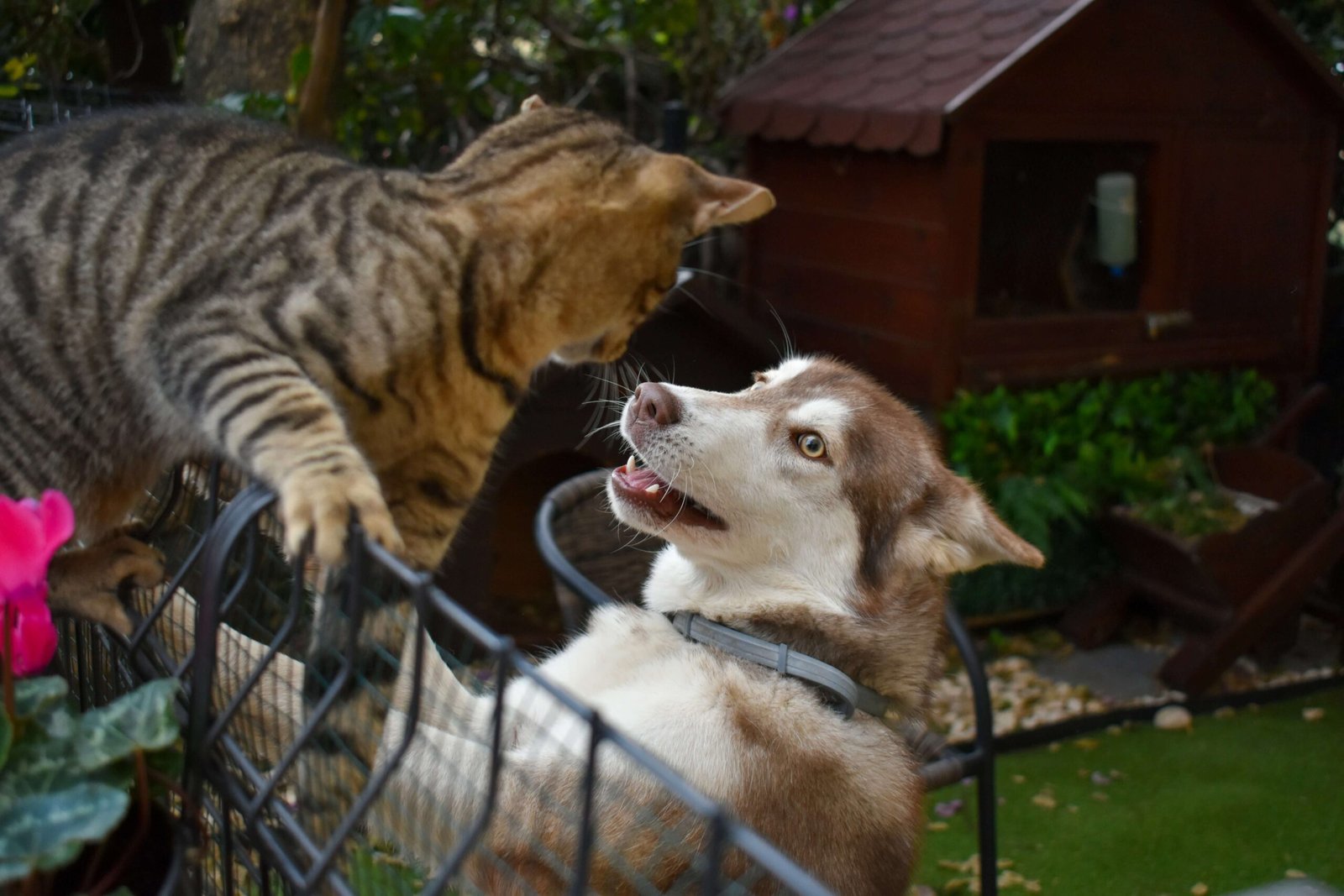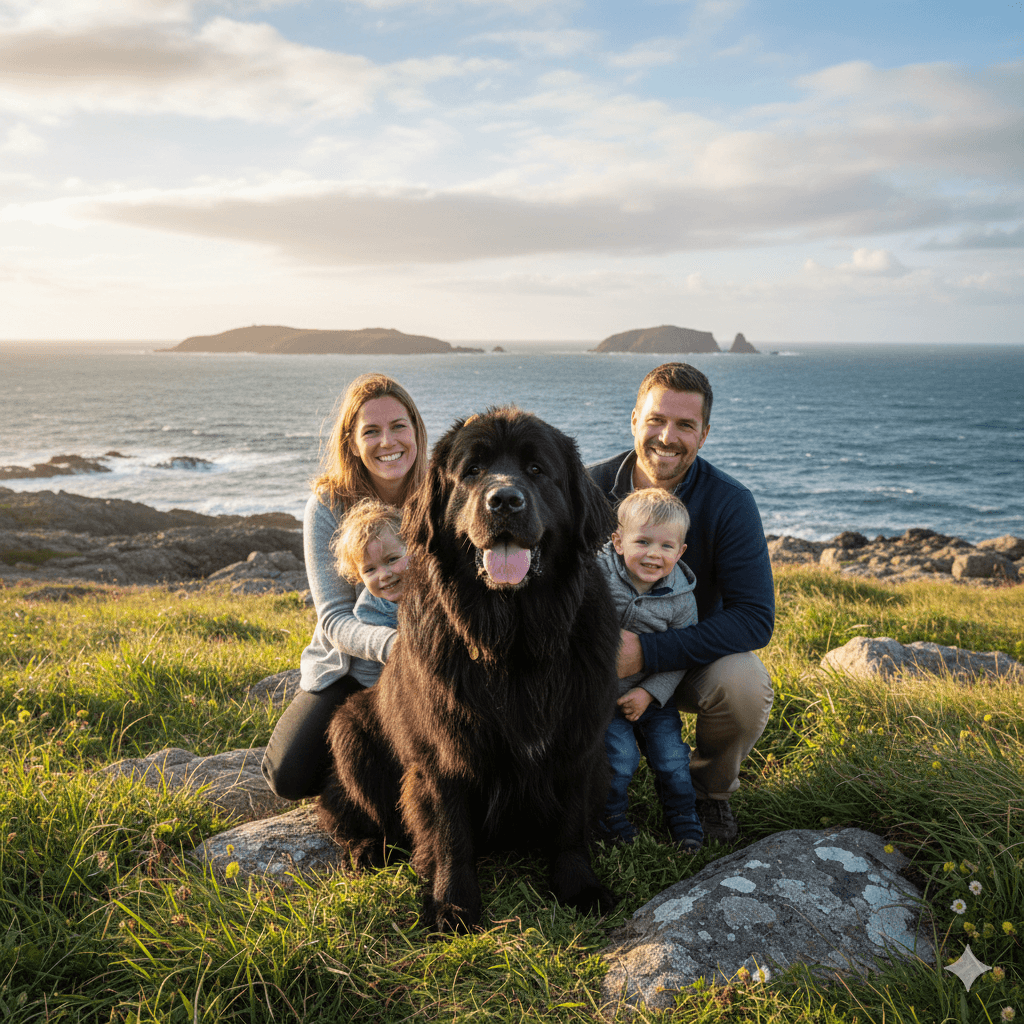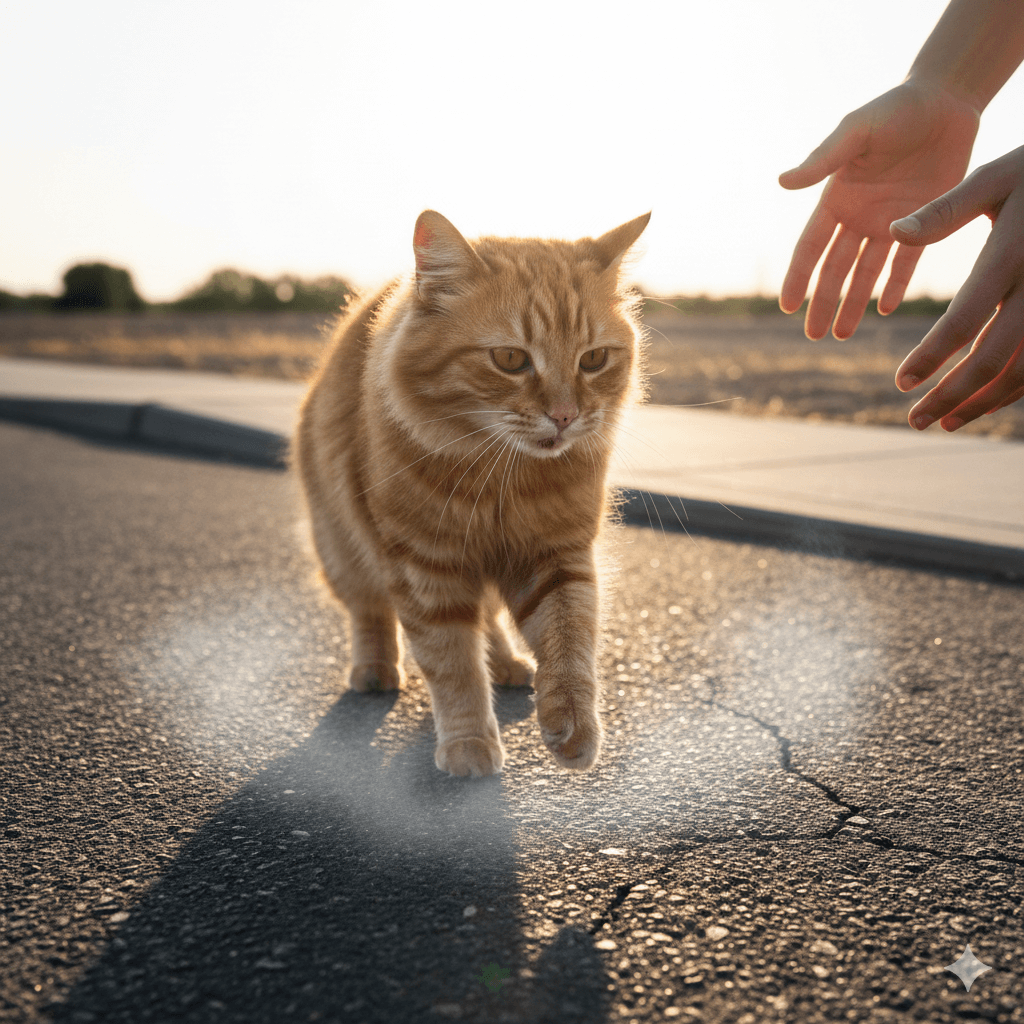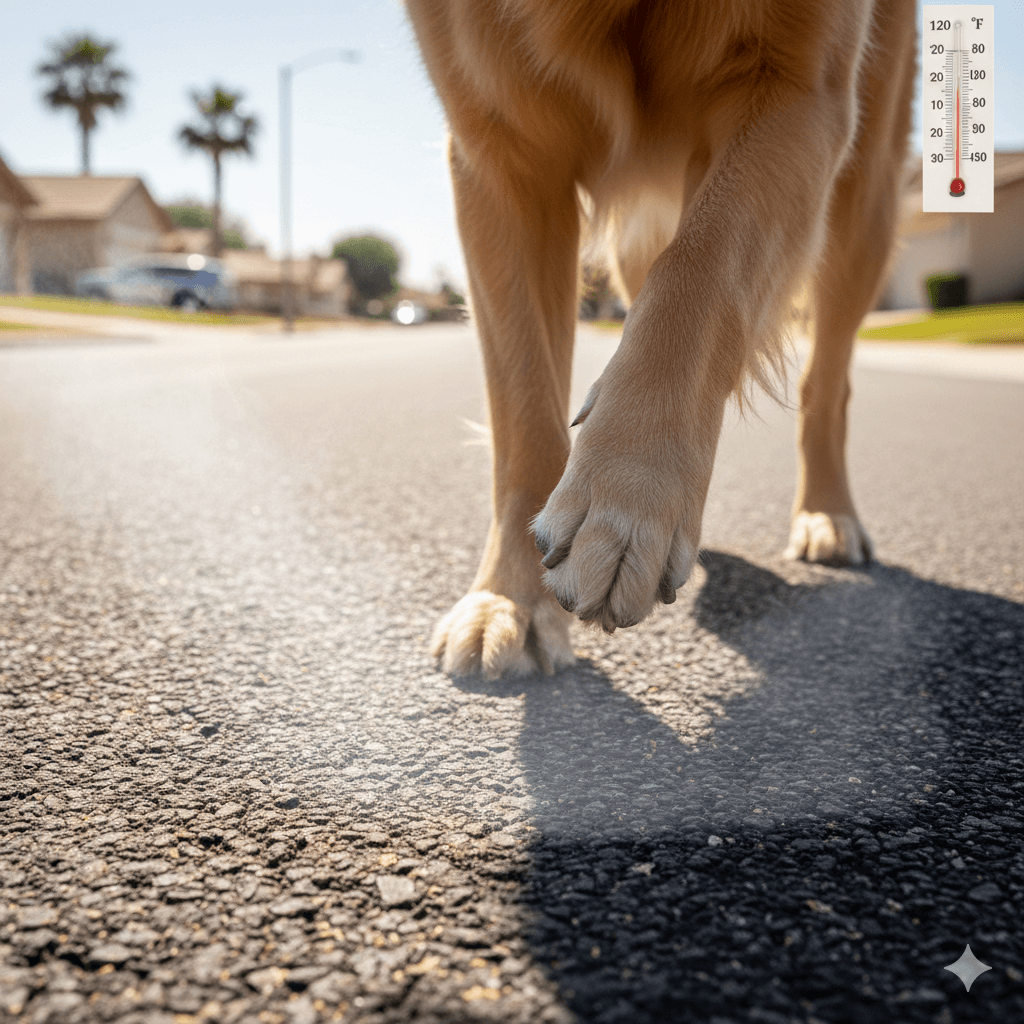Can Cats Eat Dog Food? Understanding the Risks and Realities
If you’ve ever caught your cat sneaking a bite of your dog’s food, you might be wondering, “Can cats eat dog food?” While it might seem like an innocent snack, the truth is that cats and dogs have very different nutritional needs. What’s perfectly healthy for your dog could leave your cat lacking essential nutrients—or even cause harm. In this blog post, we’ll explore whether cats can safely eat dog food, the potential risks involved, and what to do if your feline friend develops a taste for Fido’s kibble. By the end, you’ll have a clear understanding of how to keep both your pets happy and healthy while avoiding dietary pitfalls.
Why Dog Food Isn’t Ideal for Cats
While sharing food between pets might seem harmless, dog food isn’t formulated to meet a cat’s unique dietary requirements. Here’s why dog food isn’t suitable for cats:
Lack of Taurine:
Cats require taurine, an amino acid essential for heart and eye health, which is often missing in dog food.Insufficient Protein Levels:
Cats are obligate carnivores and need higher protein levels than dogs, who are omnivores.Missing Essential Nutrients:
Dog food lacks certain vitamins and minerals, like vitamin A and arachidonic acid, that are critical for feline health.Lower Fat Content:
Cats thrive on diets higher in fat, while dog food is typically lower in fat to suit canine metabolism.Different Digestive Needs:
Cats have shorter digestive tracts and require food specifically designed for their rapid nutrient absorption.
Feeding your cat dog food regularly can lead to nutritional deficiencies or health problems, so it’s best to avoid making it a habit.
Potential Risks of Feeding Dog Food to Cats
While an occasional nibble might not cause immediate harm, consistently feeding dog food to your cat can pose serious risks. Here’s what could happen if your cat consumes dog food over time:
Taurine Deficiency:
A lack of taurine can lead to vision problems, heart disease, and weakened immune function.Weight Loss or Malnutrition:
Insufficient protein and fat can result in weight loss, muscle wasting, and overall poor health.Digestive Upset:
Cats may experience vomiting, diarrhea, or constipation from eating food not suited to their digestive system.Weakened Immune System:
Missing essential nutrients can compromise your cat’s ability to fight off infections and illnesses.Behavioral Changes:
Nutritional imbalances can cause lethargy, irritability, or other behavioral shifts in your cat.
Understanding these risks highlights the importance of providing species-appropriate nutrition for your feline companion.
Check this guide 👉Can Cats Eat Peanut Butter? Best 7 Health Tips!
Check this guide 👉Can Cats Eat Avocado? Best 7 Expert Tips!
Check this guide 👉Can Cats Eat Pork? Best 7 Health Tips!
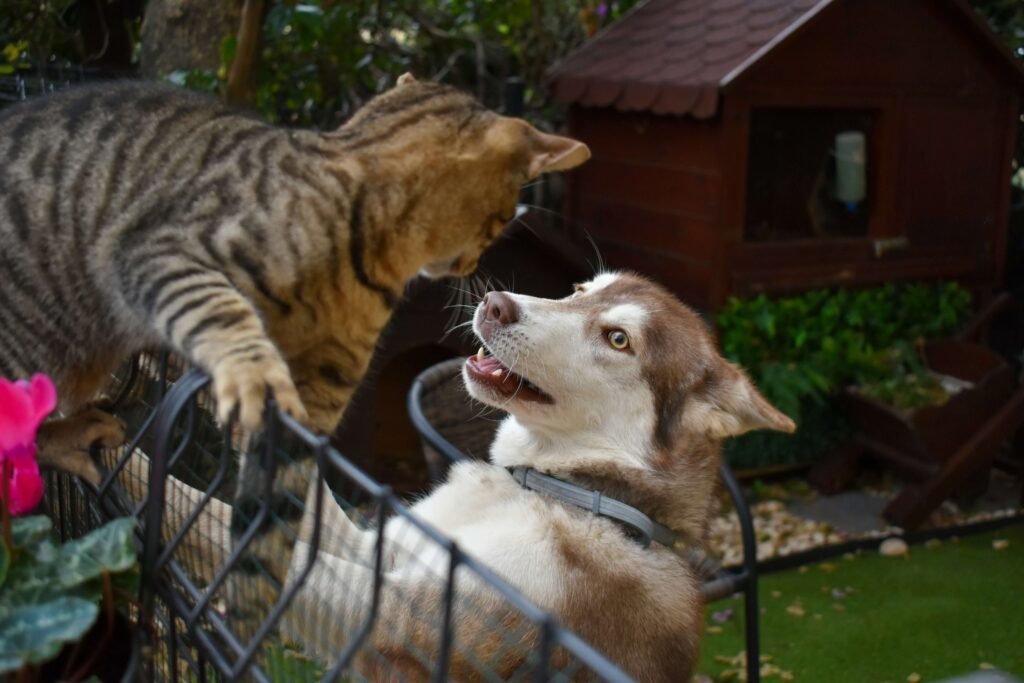
Nutrient | Why It’s Important for Cats |
|---|---|
Taurine | Supports heart, vision, and immune health |
High-Quality Protein | Essential for muscle maintenance and energy |
Vitamin A | Promotes healthy skin, coat, and vision |
Arachidonic Acid | Crucial for skin health and inflammation control |
Higher Fat Content | Provides energy and supports brain function |
How to Prevent Your Cat from Eating Dog Food
If your cat has developed a habit of munching on your dog’s food, there are steps you can take to prevent this behavior and ensure both pets stay healthy.
Separate Feeding Areas:
Feed your cat and dog in different rooms to minimize the temptation to steal food.Supervise Meal Times:
Keep an eye on both pets during meals to ensure they eat their own food.Use Elevated Bowls for Dogs:
Place your dog’s food bowl on a raised platform that’s harder for your cat to reach.Store Food Securely:
Keep dog food in sealed containers or cupboards to prevent your cat from sneaking snacks.Provide Enrichment for Your Cat:
Offer toys, puzzles, or treats to distract your cat from the allure of dog food.
By implementing these strategies, you can reduce the chances of your cat eating dog food and maintain their dietary health.
What to Do If Your Cat Eats Dog Food Occasionally
If your cat sneaks a bite of dog food every now and then, don’t panic—here’s how to handle the situation and ensure they stay healthy:
Monitor Their Behavior:
Watch for signs of digestive upset, such as vomiting or diarrhea, after they eat dog food.Offer Balanced Cat Food:
Provide nutritious cat food immediately to help balance out any missing nutrients.Check for Nutritional Gaps:
Consult your vet if you suspect your cat isn’t getting enough essential nutrients.Limit Access to Dog Food:
Take steps to prevent future incidents by securing your dog’s food more effectively.Stay Calm and Patient:
An occasional nibble isn’t harmful, but consistency in feeding practices is key to long-term health.
With these precautions, you can address the issue without unnecessary worry and keep your cat thriving.
Signs Your Cat Isn’t Getting Enough Nutrients
If your cat frequently eats dog food or has an imbalanced diet, certain signs may indicate they’re missing essential nutrients. Here’s what to look for:
Dull or Greasy Coat:
A lackluster coat can signal deficiencies in fatty acids or vitamins like vitamin A.Weight Loss or Muscle Wasting:
Insufficient protein and fat intake can lead to noticeable weight loss or reduced muscle tone.Lethargy or Weakness:
Low energy levels may result from inadequate calorie intake or nutrient imbalances.Vision Problems:
Taurine deficiency can cause retinal degeneration, leading to vision issues or blindness.Frequent Illnesses:
A weakened immune system due to poor nutrition can make your cat more prone to infections.
Recognizing these signs early allows you to address dietary gaps and prevent long-term health issues.
How to Transition Your Cat Back to Proper Nutrition
If your cat has been eating dog food regularly, transitioning them back to a balanced diet requires care and patience. Here are some steps to guide the process:
Introduce New Food Gradually:
Mix small amounts of high-quality cat food with their current food, increasing the proportion over time.Offer Wet and Dry Options:
Provide both wet and dry cat food to encourage variety and ensure adequate hydration.Use Positive Reinforcement:
Reward your cat with praise or treats when they eat their own food to reinforce the behavior.Avoid Free Feeding Dog Food:
Keep dog food out of reach during the transition to prevent temptation.Consult Your Veterinarian:
Seek professional advice if your cat resists the change or shows signs of nutritional deficiencies.
With a gradual approach, your cat will adapt to their proper diet and regain the nutrients they need for optimal health.
Alternatives to Satisfy Your Cat’s Curiosity
If your cat is drawn to dog food out of curiosity or boredom, there are ways to redirect their interest while keeping them entertained and nourished.
Provide Interactive Toys:
Puzzle feeders or treat-dispensing toys can engage your cat’s natural hunting instincts.Offer Cat-Safe Snacks:
Treats specifically formulated for cats can satisfy cravings without compromising their health.Rotate Their Food:
Introduce different flavors or textures of cat food to keep mealtime exciting and appealing.Create a Dedicated Feeding Space:
Designate a quiet, comfortable area for your cat to eat away from distractions or competition.Encourage Playtime:
Physical activity can reduce boredom and distract your cat from sneaking bites of dog food.
By offering alternatives that cater to your cat’s instincts and preferences, you can redirect their focus and ensure they stay happy and healthy.
Frequently Asked Questions About Cats Eating Dog Food
Is it safe for my cat to eat dog food once in a while?
An occasional bite won’t harm your cat, but regular consumption can lead to nutritional deficiencies.
What should I do if my cat eats a lot of dog food?
Monitor them closely for signs of illness and consult your vet if you notice any concerning symptoms.
Can kittens eat dog food?
Kittens have even stricter nutritional needs than adult cats, so dog food is especially unsuitable for them.
Why does my cat prefer dog food over their own?
Cats may be drawn to the smell or texture of dog food, but it doesn’t mean it’s good for them.
How can I train my cat to stop eating dog food?
Use positive reinforcement and create barriers, like separate feeding areas, to redirect their behavior.
Final Thoughts: Keeping Your Pets Healthy and Happy
While it might seem convenient or harmless to let your cat eat dog food, doing so can have serious consequences for their health. Cats have unique dietary needs that dog food simply can’t meet, and ensuring they receive balanced nutrition is essential for their well-being. By understanding the risks, taking preventive measures, and staying vigilant about your pet’s eating habits, you can keep both your cat and dog happy and healthy. Remember, a little effort goes a long way in maintaining harmony—and proper nutrition—in your multi-pet household. So next time your cat eyes your dog’s bowl, gently steer them back to their own food—it’s the best gift you can give them!
Newfoundland Dog Personality: Best 7 Expert Tips! – Discover the gentle, loyal, and protective nature of this giant breed perfect for families.
Can Hot Pavement Burn Your Cats Paws? Best 7 Expert Tips! – Learn how to protect your cat’s paws from hot surfaces and prevent painful burns this summer.
Can Hot Pavement Burn Your Dogs Paws? Best 7 Expert Tips! – Learn how to protect your dog’s paws from hot surfaces and ensure safe summer walks.
Irish Wolfhound Size: Best 7 Expert Tips! – Discover the ideal height, weight, and care tips for this majestic giant breed. Learn how to manage their impressive stature responsibly.

